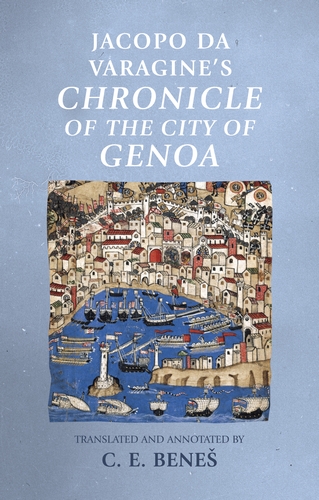Explaining defeat by blaming others
In the second year of his captaincy he armed four ships and forty galleys against the Venetians and Pisans and sent them across to Acre with a lord Rosso della Turca as Admiral. But they were badly equipped because they were filled with people from Lombardy - so that which was done badly came to a bad end, and twenty-six of the Genoese galleys were lost. After a long conflict, the parties compromised through the mediation of the Lord Pope Alexander IV, who proclaimed a truce between them. But during that truce the Venetians and Pisans had totally destroyed an extremely noble and beautiful Tower the Genoese had built in Acre.
Jacopo de Varagine's account tells us that the Genoese lost on account it had too many Lombards - by this he means there were too many sailors from Lombardy among the ships' crew. A classic case of blaming defeat not on yourself, but on others. Another interesting thing to note is that "truce" was more a confirmation of the Genoese loss in Acre, which had forced them out of the city. In Varagine's version the magnitude of Genoa's defeat is underplayed, another somewhat common reaction from those who lose. That said, Jacopo de Varagine's Chronicle of the City of Genoa, written at the end of the thirteenth century, offers an interesting perspective on both the Genoese and the history of these times. The work has been recently translated by C.E. Benes and is published by Manchester University Press. You can read more about this conflict in Stephen Donnachie's article, "The War of St Sabas, 1256-1258: Venice, Genoa, and Pisa in the Levant" in the latest issue of Medieval Warfare - click here for more details.
You can read more about this conflict in Stephen Donnachie's article, "The War of St Sabas, 1256-1258: Venice, Genoa, and Pisa in the Levant" in the latest issue of Medieval Warfare - click here for more details.
Top Image: Bibliothèque nationale de France MS Francais 9685 fol. 94v




